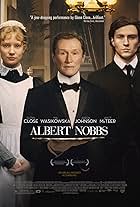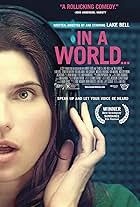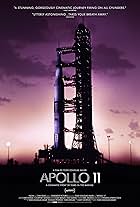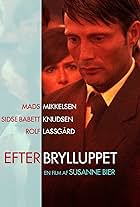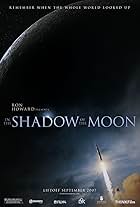AVALIAÇÃO DA IMDb
8,2/10
3,3 mil
SUA AVALIAÇÃO

2
Este arquivo de vídeo não pode ser reproduzido.(Código de Erro: 224003)
Reproduzir trailer2:17
2
Adicionar um enredo no seu idiomaDan Cohen, founder of the nonprofit organization Music & Memory, fights against a broken healthcare system to demonstrate music's ability to combat memory loss and restore a deep sense of se... Ler tudoDan Cohen, founder of the nonprofit organization Music & Memory, fights against a broken healthcare system to demonstrate music's ability to combat memory loss and restore a deep sense of self to those suffering from it.Dan Cohen, founder of the nonprofit organization Music & Memory, fights against a broken healthcare system to demonstrate music's ability to combat memory loss and restore a deep sense of self to those suffering from it.
- Direção
- Roteirista
- Artistas
- Prêmios
- 12 vitórias e 7 indicações no total
Avaliações em destaque
The discovery that music, when carefully selected for and played to individual dementia patents, can bring them out of their depressed stupor, and/or calm them down when agitated -- is simply profound.
The documentary is very professional and does a fine job of illuminating this new and major movement throughout the "rest homes" of the world -- one which even eliminates the need for a rest home in some cases.
If you were afraid to see yet another "depressing account" of the state of our elderly -- don't be! This is anything but depressing (for the most part) as it demonstrates what is possibly the greatest (and mostly hidden) wealth within each of our minds: music.
Seems that a sense of and remembrance of music is one of the last things to go in our brains when we age. Not only is the music shown to be enjoyable by elderly, but, as shown succinctly in this film, the right music can unlock many other memories, leading to an obvious joy of heart.
Watch it and be truly amazed, even crying with joy.
The documentary is very professional and does a fine job of illuminating this new and major movement throughout the "rest homes" of the world -- one which even eliminates the need for a rest home in some cases.
If you were afraid to see yet another "depressing account" of the state of our elderly -- don't be! This is anything but depressing (for the most part) as it demonstrates what is possibly the greatest (and mostly hidden) wealth within each of our minds: music.
Seems that a sense of and remembrance of music is one of the last things to go in our brains when we age. Not only is the music shown to be enjoyable by elderly, but, as shown succinctly in this film, the right music can unlock many other memories, leading to an obvious joy of heart.
Watch it and be truly amazed, even crying with joy.
Dementia affects around 46,8 millions of people around the world and Alzheimer Disease is the main cause of it. This devastating pathology takes away from you the most important treasure: your memories. You unlearn how to eat, how to dress, how to talk and even how to live. You become dependent. But if instead just medicines, music had an important healing power? In "Alive Inside", a Michael Bennett documentary, we saw the brilliant idea of Dan Cohen, a social worker, be successfully applied - listening music can renew dignity of those who have forgotten their own value. Released in 2014, this delightful film shows the reaction of Alzheimer's heroes and other dementias to listening to personalized music - they awake from a deep sleep and become alive again. It's joyful to see them dancing, singing and talk about it.
Finally, we follow his fight in order that the highest number of nursing homes in the United States can adopt your therapy. Touching and inspiring, this movie teach us the sense of humanity, showing that difference can and should be done.
Finally, we follow his fight in order that the highest number of nursing homes in the United States can adopt your therapy. Touching and inspiring, this movie teach us the sense of humanity, showing that difference can and should be done.
I had the privilege to see this at the Sundance Film Festival. It was the most memorable film experience of my life.
It will change the way you view the elderly and those with dementia. In shows that in the midst of what seems to be the overwhelming burden of the memory loss of dementia, there is still the hidden spark of who the person was and is. This spark is revealed as these elders hear the music of their lives. It is truly amazing to see people re-enlivened and joyful.
As a part of the Sundance experience we were able to have a question and answer with the director. It was evident that this film was made because he discovered something amazing and had to share it. This has the potential to change the lives of millions of elders. Truly the best of what indie films are about!
It will change the way you view the elderly and those with dementia. In shows that in the midst of what seems to be the overwhelming burden of the memory loss of dementia, there is still the hidden spark of who the person was and is. This spark is revealed as these elders hear the music of their lives. It is truly amazing to see people re-enlivened and joyful.
As a part of the Sundance experience we were able to have a question and answer with the director. It was evident that this film was made because he discovered something amazing and had to share it. This has the potential to change the lives of millions of elders. Truly the best of what indie films are about!
How many times does one visit the nursing home? Feed the hungry? Or volunteer in any other way? It's an act of caring and giving that takes a lot to stomach. Many people these days, including myself try not to pay attention to these things because of how uncomfortable it is visually and physically see right in front of us. It's a quiet pity that we all hold and tend to push to the back of our minds. Hoping that all of our other daily tasks can distract us from such awkwardness. In some ways it's almost like today's generation is too embarrassed to acknowledge the issues and don't expect it to happen in our lifetime. When in fact, this is the exact opposite.
Now that's not to say when we get older, we will all develop alzheimer's and be put in nursing homes, but it's important to understand that it's also not the most uncommon of diseases like vitiligo or polio. Alzheimer's affects numerous elderly individuals and once it's diagnosed, there really isn't anything anyone can do from stopping it. However, one man has found a remedy to help slow it down, along with exposing various aspects of today's healthcare system. Dan Cohen (a public social worker) and filmmaker Michael Rossato-Bennett team up in this stunning documentary about how bringing music to alzheimer's patients can help bring back some, if not most of the life and soul of what used to be the youth of the early to mid 1900s.
There really isn't much to dispute about here. Both the writer/director and social worker duo demonstrate the power of music simply by putting headphones on the older folk. To watch them go from slumped over and quiet or mumbling to bouncing around and crying or laughing is astonishing. The results are phenomenal and it's quite honestly baffling because how come no one had ever thought of doing this before? You didn't even need iPods to figure this out; someone back in the late 1990s could have tried this with Walkmans or portable CD players. It all seems so obvious now and it's weird that no one considered this as a type of therapy. I mean, there are therapy dogs and other types of animals that are used to help jog patients' memories, so why not music? It's better than just feeding them pills and vitamins constantly everyday. Where's the enjoyment in that?
Perhaps the strangest thing of all is that even with all the positive results, the film crew displays continuous rejections from top authority figures in the healthcare system. It's tragic because who would deny such optimistic opportunities? Viewers should not only get a kick out of the end result to these amazing transformations but also how this particular story unfolds. The way this documentary is told, is by looking through the eyes of Dan Cohen when he first started trying this particular study. As time plays out, the viewer will see the struggles he had to face, the turndowns and even the surprises. An example of this would be how this particular film came to light. All it needed was to be released onto the internet and it got people motivated. I didn't even know about this until a friend of mine who plays in a group shared the link.
Another thing to think about are the possible futures that lie ahead for the currently old and the one's who will become old. Michael Rossato- Bennett brings into play how the number of elderly people have increased over time and if it continues at the same rate, there will be less supplies available to take care of them. It's a grim outlook if things aren't looked at carefully. As for the actual quality of filmmaking, it looks very good. Itaal Shur's musical composition perfectly blends in raw emotion and tenderness for each scene. Shachar Langlev's cinematography shows many POV shots giving viewers an idea of how bland and lifeless a nursing home looks like no matter how friendly the people who work there are.
This is perhaps the only drawback to this involving movie. It is a tad one-sided (although rightfully so for everything explained prior). But there are some things that aren't explored. For one, has there ever been a patient that was not willing to listen to music? Or has there ever been a patient willing to listen but it did not have the positive effect it had on so many others? These special scenarios would've been interesting to see as well. What would Dan Cohen's next step be to counter such a roadblock? These kinds of questions are important. Perhaps with a little more running time, the crew could have added that to this production. It is a very intellectual film that any viewer should watch because at some point, everyone gets old and just like Dennis Haysbert would ask from Allstate - "Are you in good hands"?
Aside from being a bit one-sided, this documentary explores the alternate avenue of fighting alzheimer's with the power of music. The provided information, music, patients and emotion are all authentic and it is exactly what makes this so uplifting to see.
Now that's not to say when we get older, we will all develop alzheimer's and be put in nursing homes, but it's important to understand that it's also not the most uncommon of diseases like vitiligo or polio. Alzheimer's affects numerous elderly individuals and once it's diagnosed, there really isn't anything anyone can do from stopping it. However, one man has found a remedy to help slow it down, along with exposing various aspects of today's healthcare system. Dan Cohen (a public social worker) and filmmaker Michael Rossato-Bennett team up in this stunning documentary about how bringing music to alzheimer's patients can help bring back some, if not most of the life and soul of what used to be the youth of the early to mid 1900s.
There really isn't much to dispute about here. Both the writer/director and social worker duo demonstrate the power of music simply by putting headphones on the older folk. To watch them go from slumped over and quiet or mumbling to bouncing around and crying or laughing is astonishing. The results are phenomenal and it's quite honestly baffling because how come no one had ever thought of doing this before? You didn't even need iPods to figure this out; someone back in the late 1990s could have tried this with Walkmans or portable CD players. It all seems so obvious now and it's weird that no one considered this as a type of therapy. I mean, there are therapy dogs and other types of animals that are used to help jog patients' memories, so why not music? It's better than just feeding them pills and vitamins constantly everyday. Where's the enjoyment in that?
Perhaps the strangest thing of all is that even with all the positive results, the film crew displays continuous rejections from top authority figures in the healthcare system. It's tragic because who would deny such optimistic opportunities? Viewers should not only get a kick out of the end result to these amazing transformations but also how this particular story unfolds. The way this documentary is told, is by looking through the eyes of Dan Cohen when he first started trying this particular study. As time plays out, the viewer will see the struggles he had to face, the turndowns and even the surprises. An example of this would be how this particular film came to light. All it needed was to be released onto the internet and it got people motivated. I didn't even know about this until a friend of mine who plays in a group shared the link.
Another thing to think about are the possible futures that lie ahead for the currently old and the one's who will become old. Michael Rossato- Bennett brings into play how the number of elderly people have increased over time and if it continues at the same rate, there will be less supplies available to take care of them. It's a grim outlook if things aren't looked at carefully. As for the actual quality of filmmaking, it looks very good. Itaal Shur's musical composition perfectly blends in raw emotion and tenderness for each scene. Shachar Langlev's cinematography shows many POV shots giving viewers an idea of how bland and lifeless a nursing home looks like no matter how friendly the people who work there are.
This is perhaps the only drawback to this involving movie. It is a tad one-sided (although rightfully so for everything explained prior). But there are some things that aren't explored. For one, has there ever been a patient that was not willing to listen to music? Or has there ever been a patient willing to listen but it did not have the positive effect it had on so many others? These special scenarios would've been interesting to see as well. What would Dan Cohen's next step be to counter such a roadblock? These kinds of questions are important. Perhaps with a little more running time, the crew could have added that to this production. It is a very intellectual film that any viewer should watch because at some point, everyone gets old and just like Dennis Haysbert would ask from Allstate - "Are you in good hands"?
Aside from being a bit one-sided, this documentary explores the alternate avenue of fighting alzheimer's with the power of music. The provided information, music, patients and emotion are all authentic and it is exactly what makes this so uplifting to see.
We need music. That's the message you are going to get from this documentary. And very few are as eye opening as "Alive inside" which takes us into the world of nursing homes in the US. It's easy to forget that there are millions of people living alone with no relatives to pay them a visit. We go on with our daily lives and spend more time talking to strangers on social medias than actually doing something for real people who are there and need us. The scary thing, it's that it might very likely be the way we end up ourselves: sat on a chair in a nursing home while contemplating yet again a plain wall for hours.
What Dan (the protagonist of this documentary) sets to do is to show the power of alternative therapies for people with Dementia, or simply people who have forgotten all about their lives. And his soothing therapy couldn't be simpler: Music! That's right! nothing else. We see the residents of these nursing homes with broken spirits, unable to articulate a sentence, incapable of remember any details from the past. Surprisingly, the moment they are exposed to music, memories come back to them. A spark lightens up in their eyes, they even dance, and start talking more than they ever did. Music makes them cry, laugh, jump. As one of them says: "It makes me feel like I have a girl and I can hug her".
How can music be so powerful? some bits are explained in the documentary, so I hope you will find the time to watch it. While it might not be the best edited piece of film making around, for the sake of its content, you should definitely give it go!
What Dan (the protagonist of this documentary) sets to do is to show the power of alternative therapies for people with Dementia, or simply people who have forgotten all about their lives. And his soothing therapy couldn't be simpler: Music! That's right! nothing else. We see the residents of these nursing homes with broken spirits, unable to articulate a sentence, incapable of remember any details from the past. Surprisingly, the moment they are exposed to music, memories come back to them. A spark lightens up in their eyes, they even dance, and start talking more than they ever did. Music makes them cry, laugh, jump. As one of them says: "It makes me feel like I have a girl and I can hug her".
How can music be so powerful? some bits are explained in the documentary, so I hope you will find the time to watch it. While it might not be the best edited piece of film making around, for the sake of its content, you should definitely give it go!
Você sabia?
Principais escolhas
Faça login para avaliar e ver a lista de recomendações personalizadas
- How long is Alive Inside: A Story of Music and Memory?Fornecido pela Alexa
Detalhes
- Data de lançamento
- País de origem
- Centrais de atendimento oficiais
- Idioma
- Também conhecido como
- Alive Inside: A Story of Music and Memory
- Locações de filme
- Empresas de produção
- Consulte mais créditos da empresa na IMDbPro
Bilheteria
- Orçamento
- US$ 600.000 (estimativa)
- Faturamento bruto nos EUA e Canadá
- US$ 256.682
- Fim de semana de estreia nos EUA e Canadá
- US$ 7.200
- 20 de jul. de 2014
- Faturamento bruto mundial
- US$ 256.682
- Tempo de duração1 hora 18 minutos
- Cor
Contribua para esta página
Sugerir uma alteração ou adicionar conteúdo ausente

Principal brecha
By what name was Alive Inside (2014) officially released in Canada in English?
Responda











